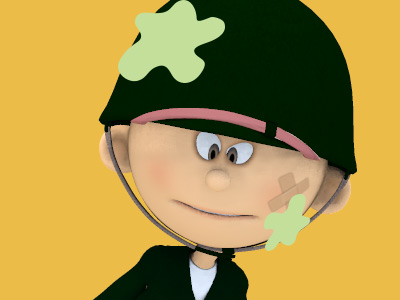Paintball

Playing Venues
Paintball is played at both commercial venues, which require paid admission, and private land; both of which may include multiple fields of varying size and layout. Fields can be scattered with either natural or artificial terrain, and may also be themed to simulate a particular environment, such as a wooded or urban area, and may involve a historical context. The world's largest paintball company, some have around 37 paintball centers globally and provides movie themed fields complete with movie-quality props and structures. Smaller fields (such as those used for speedball and tournament play) may include an assortment of various inflatable bunkers; these fields are less prone to cause injury as the bunkers are little more than air bags, which can absorb the impact of a player colliding with them. Before these inflatable fields became available and popular, speedball fields were commonly constructed of various rigid building materials, such as plywood and framing timber, shipping pallets, even concrete and plastic drainage pipe. The use of plastic pipe tethered with stakes became common, as it allowed for relatively easy reconfiguration of fields and at least some impact-absorption, and was the precursor to the modern inflatable bunker (in fact, certain common features in inflatable fields, such as "can" and "snake" bunkers, were derived from similar features built with plastic drainage pipe). Recreational fields still commonly use these older materials for their higher durability and novelty; inflatable bunkers are prone to bursting seams or otherwise developing holes and leaks. Other fields have wooden or plastic barriers.
Commercial venues may provide amenities such as bathrooms, picnic areas, lockers, equipment rentals, air refills and food service. Countries may have paintball sports guidelines, with rules on specific safety and insurance standards, and paid staff (including referees) who must ensure players are instructed in proper play to ensure participants' safety. Some fields are "BYOP" (Bring Your Own Paint), allowing players to buy paint at unrelated retail stores or online and use it at their field. However, most fields are FPO (Field Paint Only,) meaning players must buy paint at the venue or at a pro shop affiliated with the park. This is largely for revenue reasons; field and rental fees generally do not cover expenses of a paintball park. However, other reasons relating to player safety are generally cited and have some merit, as poor quality or poorly stored paint can cause gun failures or personal injury to targeted players. Other times, FPO policies are in keeping with municipal laws for wastewater and runoff; paintballs contain food dyes, and some formulations have metallic flakes and/or cornstarch to make them more visible, all of which can pose problems in water reservoirs and treatment plants. So, fields that must wash paintball paint into municipal wastewater facilities, or that have substantial rain runoff into bodies of water that are used as sources of drinking water, are generally required by the municipality to restrict players to only certain paint formulations; the easiest way to achieve this is to sell only approved paint and require that field paint be used.
Playing on a non-established field is sometimes referred to as renegade or gonzo play or outlaw ball (with the players nicknamed renegade ballers or outlaws). Though less expensive and less structured than play at a commercial facility, the lack of safety protocols, instruction, and oversight can lead to higher incidence of injuries.
SPORTS

RESOURCES
This article uses material from the Wikipedia articles "Paintball" and "Player positions (paintball)", which is released under the Creative Commons Attribution-Share-Alike License 3.0.
© Stories Preschool. All Rights Reserved.








